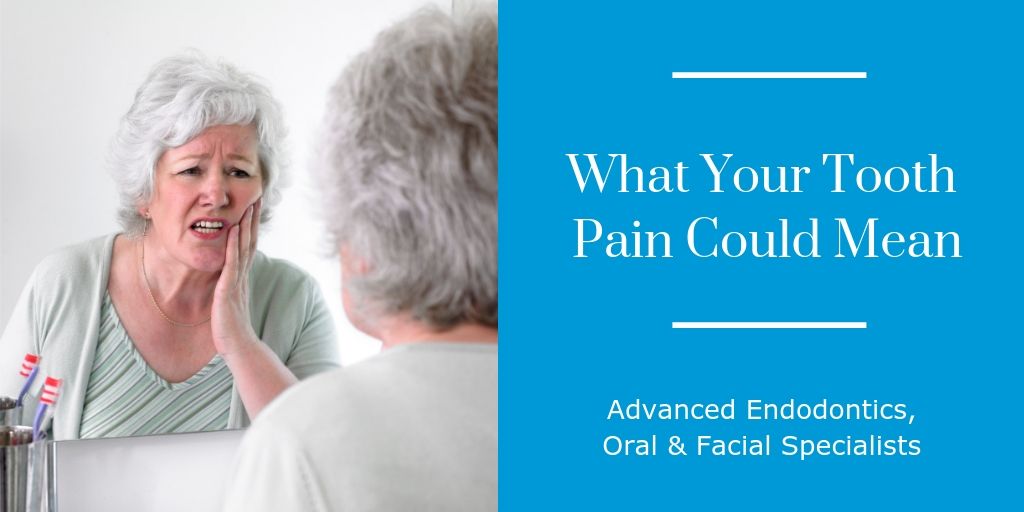 Tooth pain is a sign that something is wrong, and whether it feels throbbing and sharp or dull and achy, it can easily make it difficult to talk, chew, focus, or get some shut-eye. There are so many different things that can cause pain in a tooth, and any type of tooth pain is worth a check-in with your dentist. Ignore the issue, and it’s likely to get even worse.
Tooth pain is a sign that something is wrong, and whether it feels throbbing and sharp or dull and achy, it can easily make it difficult to talk, chew, focus, or get some shut-eye. There are so many different things that can cause pain in a tooth, and any type of tooth pain is worth a check-in with your dentist. Ignore the issue, and it’s likely to get even worse.
Here’s a closer look at the common symptoms that come along with tooth pain, the causes, and the treatment options to help you eliminate that discomfort.
Common Symptoms
Tooth pain can be sharp, stabbing, dull, or achy. It can be constant or may only occur when you bite into something or eat something sweet. Some of the common symptoms that could coincide with tooth pain may include:
- Pain or tenderness in the gums
- Aching or pain in your jaw
- Tingling or sensitive teeth
- Redness
- Swelling of the gums
- Fever
- Bad taste and/or smell in your mouth
- Headache
Potential Causes of Tooth Pain and Treatment Options
So, what’s actually causing that tooth pain? A few of the potential causes include:
- Cavities – The most common cause of tooth pain is a cavity, which occurs when bacteria eat through your tooth enamel. A cavity may look like a small black, brown, or white spot on a tooth. Cavity treatment includes removing the damaged part of the tooth and placing a filling.
- Tooth Abscess – When part or all of the pulp inside your tooth dies, this dead tissue can create a pocket of bacteria known as an abscess. Treatment includes antibiotics to treat the infection, draining and cleaning the abscess, and may potentially require a root canal. If the tooth can’t be saved, then you may want to consider an extraction and a dental implant to replace the tooth.
- Grinding Your Teeth – If you’re grinding your teeth due to stress during the day or unconsciously at night, regular grinding could weaken tooth enamel, potentially cause fractures, and wear down teeth. The best treatment for grinding is a mouth guard. Consult with your dentist to come up with a treatment plan to deal with any damage already done.
- Tooth Fracture – A split or crack in your tooth can occur if you bite down on something hard or if you sustained a trauma like getting hit in the face with a ball or falling. Fractures allow things to get into your tooth, which can irritate or even infect nerves and pulp, which causes pain. Fractured teeth can often be repaired with dental glue, a filling, or veneers, and in some cases, you could require a crown for the tooth or even a root canal.
- Gum Disease – Gum disease can cause tooth pain in several ways. First, it can shrink gums away from your tooth, causing your tooth to become loose or cavities, which can both cause tooth pain. Bacteria from affected gums may build up around the roots of your teeth as well, which can cause infection and result in tooth discomfort. Your dentist can treat gum disease with scaling, root planning, and additional treatment options if needed.
- Damaged Filling – A current filling can be damaged by biting something hard, clenching your teeth, or even just normal chewing and biting. Your dentist can repair a damaged filling, but if the tooth has become too damaged, it may require a crown.
- Loose Crown – If you have a crown, over time, it can become loose due to normal wear and tear. It’s even possible for a crown to crack and chip like a natural tooth. When a crown is loose, bacteria may get under it, resulting in an infection that causes throbbing tooth pain. Treatment involves removing the crown, treating the tooth, and then replacing the crown with a new one.
When Should You See the Dentist?
Any time you experience tooth pain, you should contact your dentist and set up an appointment. Tooth pain is a sign that something is wrong, and whether you’re dealing with a small cavity or a severe abscess, treatment is essential. If you’re dealing with tooth pain, don’t wait until it gets worse – contact Advanced Endodontics, Oral and Facial Specialists to set up your appointment today.

